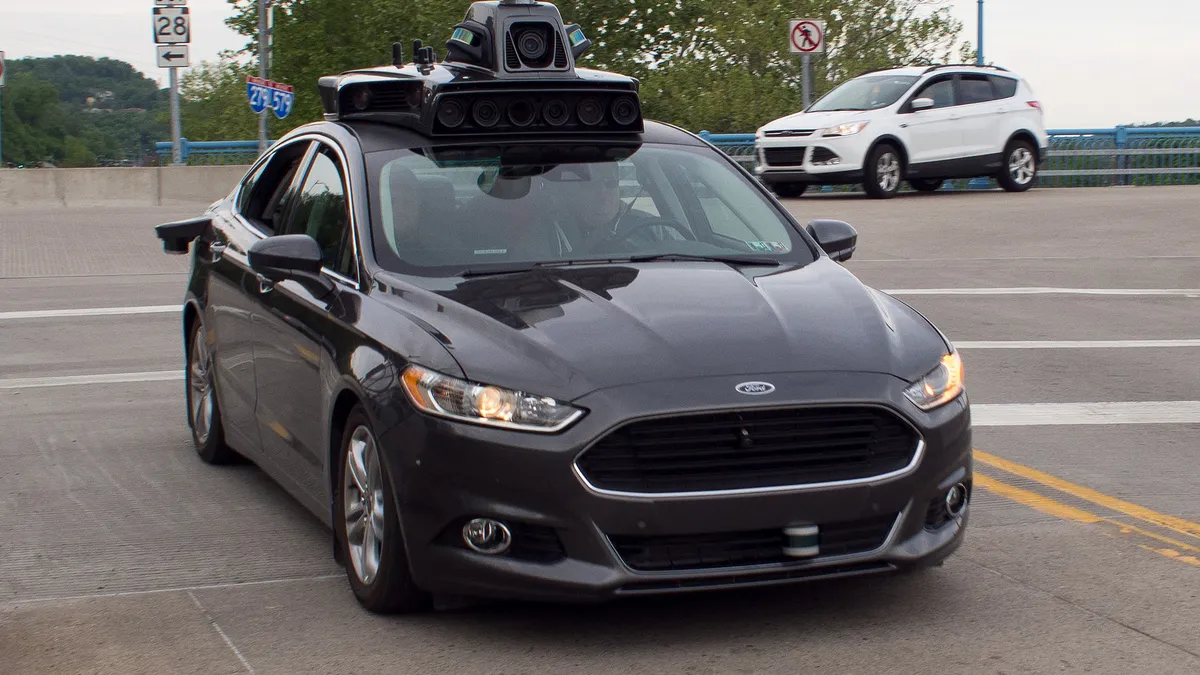Dive Brief:
- Seven in 10 Americans believe autonomous vehicles (AVs) will be commonplace in 15 years, according to a new survey from HNTB Corporation, with 51% of those surveyed saying the technology will be a benefit for the elderly and disabled populations.
- Safety remains a major concern, with 59% of respondents saying AVs are not as safe as those driven by humans, and 55% saying they would not ride in one today.
- When readily available, 37% of respondents said that travel between transit stations and airport terminals was the mostly likely use, followed by ride-sharing and ride-hailing (34%), mobility within defined areas (33%) and local package delivery (32%).
Dive Insight:
The survey shows that safety concerns remain a major barrier for consumers and builds on other recent polls showing consumers still don’t fully trust the technology. That comes after several high-profile incidents this year alone, when an Uber test vehicle struck and killed a pedestrian in Tempe, AZ in March, and a Waymo test car crashed last month in Chandler, AZ when another car swerved towards it.
Polling from Morning Consult saw a 14% increase in respondents saying self-driving cars were less safe than human drivers between January and March (36% to 50%). Likewise, a AAA survey in May found that 73% of respondents said they would not ride in an autonomous vehicle, which the group said was attributable to shaken consumer trust after the crashes.
That’s even though AVs are widely expected to reduce traffic fatalities from the more than 30,000 per year in the U.S. from human-controlled vehicles. Jim Barbaresso, HNTB’s intelligent transportation systems national practice leader, said in a statement the results show the "need to educate and communicate information to help people understand the benefits of automated vehicles and how this technology will be used."
The HNTB survey did find that millennials are more trusting of AVs, with 59% saying they were safer (millennials were also more likely to say they would ride in one, with a 60% response), building on Gallup research that also showed an age gap in acceptance.
While some local leaders have eased off their support for autonomous vehicle testing after the Arizona crash, others are taking steps to increase consumer trust. California has approved pilot programs for test rides in driverless cars and Tampa, FL recently hosted free public test rides to get citizens more comfortable.











